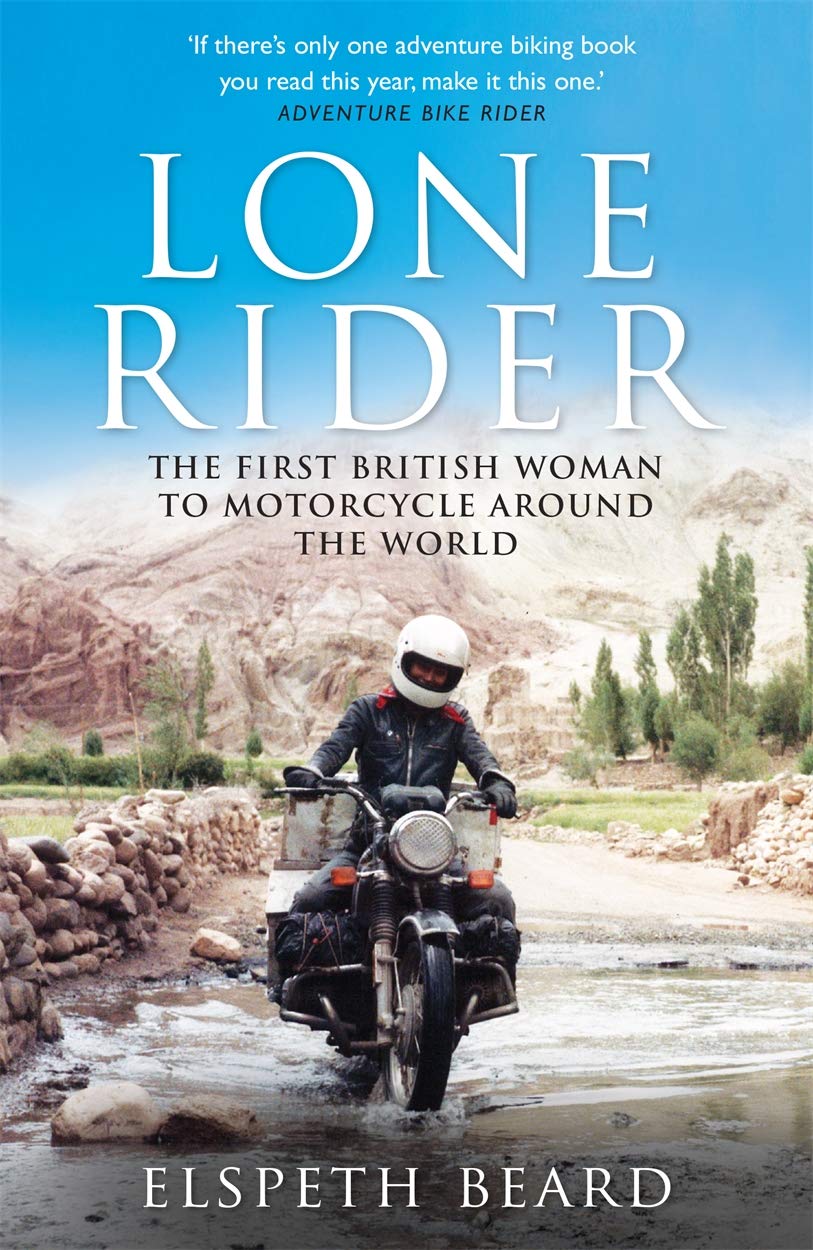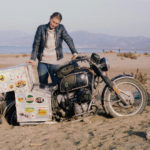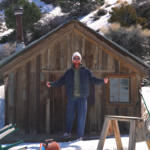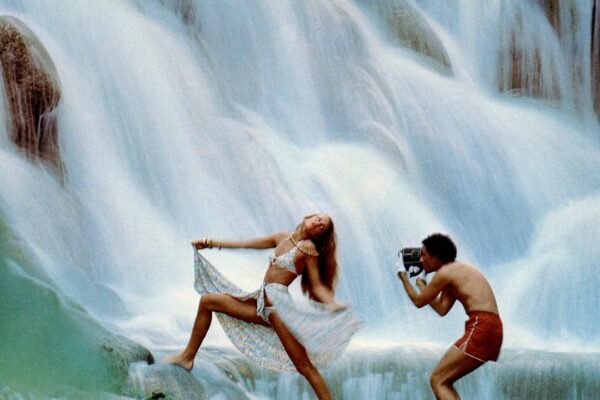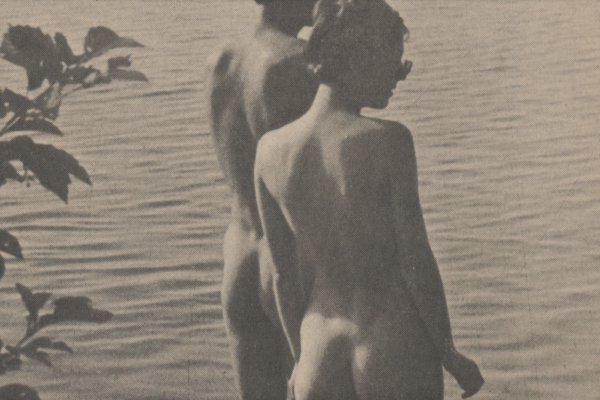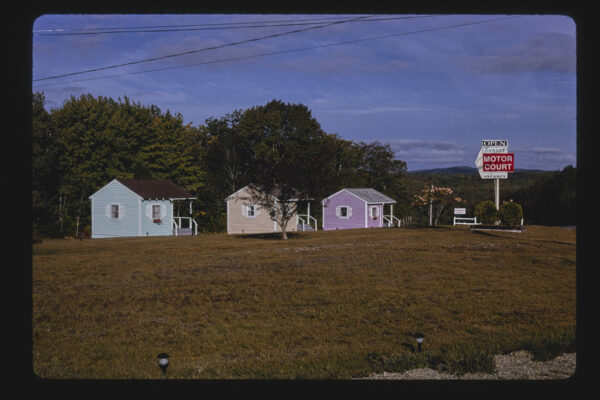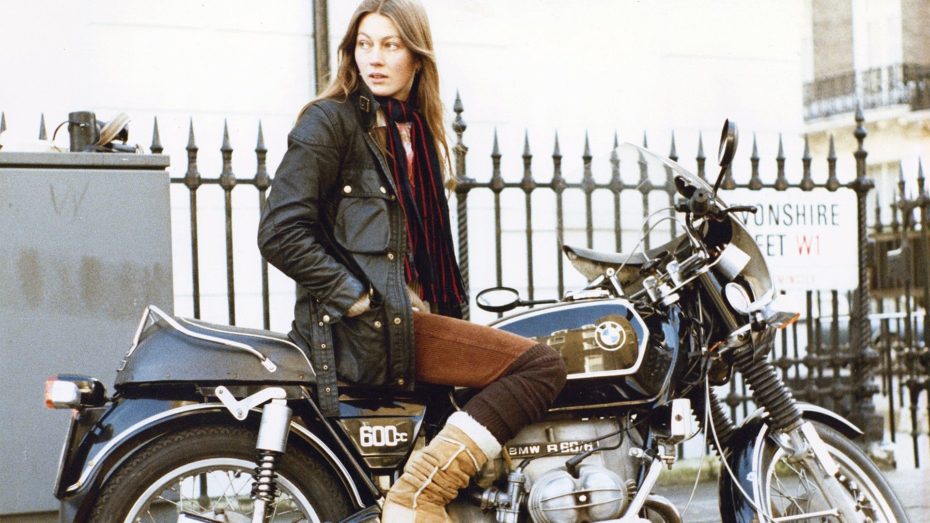
In the summer of 1982, a 23-year-old Elspeth Beard set off on her motorbike, and didn’t return home until she’d travelled the entire globe – a remarkable feat for any person, but particularly as a solo female biker nearly 40 years ago, making her one of the first women to ride around the world alone by bike. These days, Elspeth has finally begun to share the mud-scuffed, inspiring details of her story with the world – and we wanted to know: what was it really like out there, all alone? Which people and places touched her heart the most? What advice would she give an aspiring explorer today in these unchartered times?
We’ve edited some of the interview’s highlights to whet your appetite…
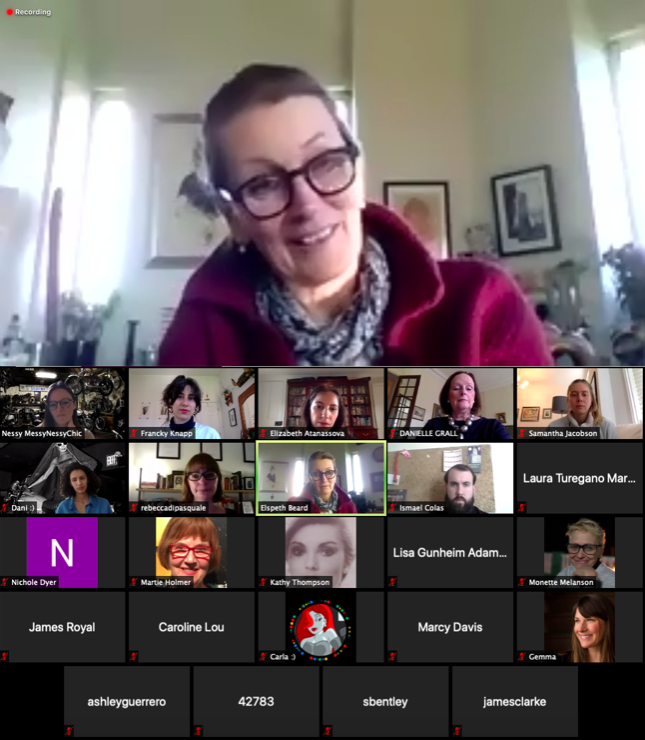
Messy Nessy Chic: Thanks for joining us here in Paris – by Zoom, of course. Are you joining us from your converted Victorian water tower home?
Elspeth Beard: I am [laughs] and I’m about 80 feet up at the moment. I bought it in 1988, and spent seven years converting it from a derelict water tower into my home. So it was a long haul project. It’s a bit like a little castle, a little folly.
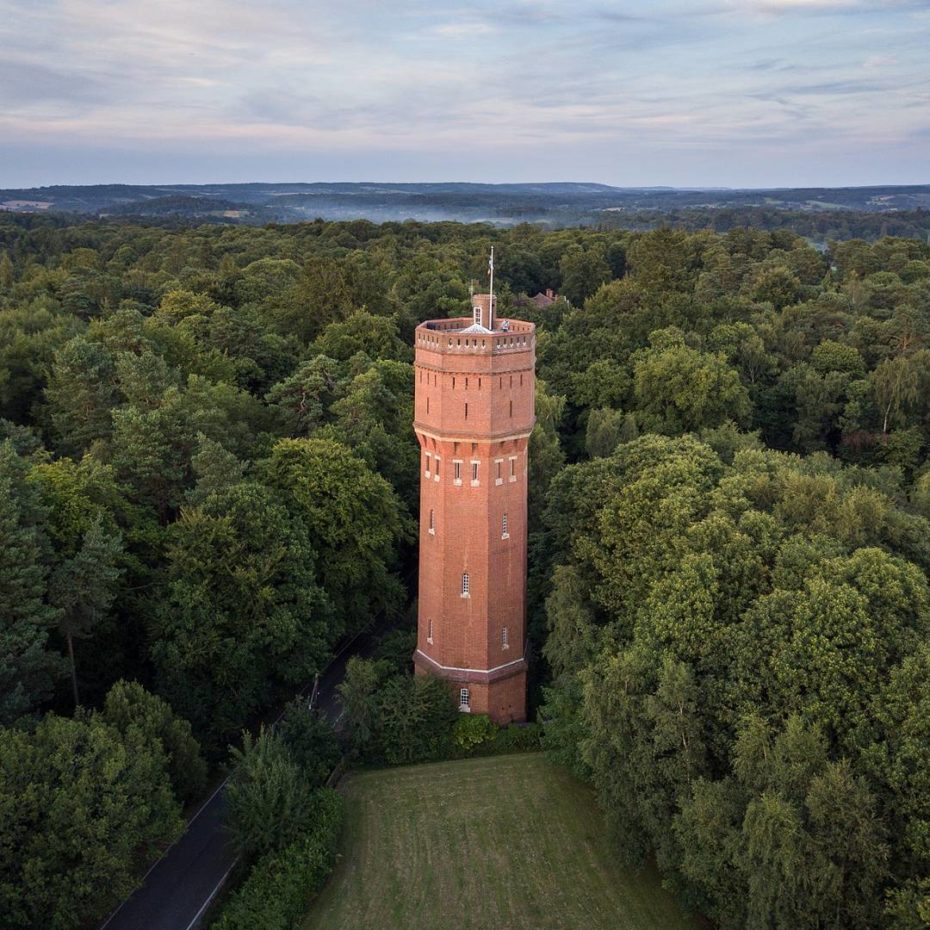
MNC: There are so many elements to your story. You’re a woman ahead of your time, an explorer, book author, famous motorcyclist, award-winning architect – I wonder, which of these do you most identify with now?
EB: Ah, well, that’s interesting! When I got back from my trip in 1984, there was very little interest in my journey. I very much packaged my journals and photos in a carboard box, for about thirty years. My life had very much moved away from all of that. I went back to study architecture upon my return, then I found the water tower – another challenge – and opened my practice in 1998. So it was architecture, but now I’m being pulled more towards my book, Lone Rider: the First British Woman to Motorcycle Around the World (2017). It’s all kind of changed as I’ve gone through life.
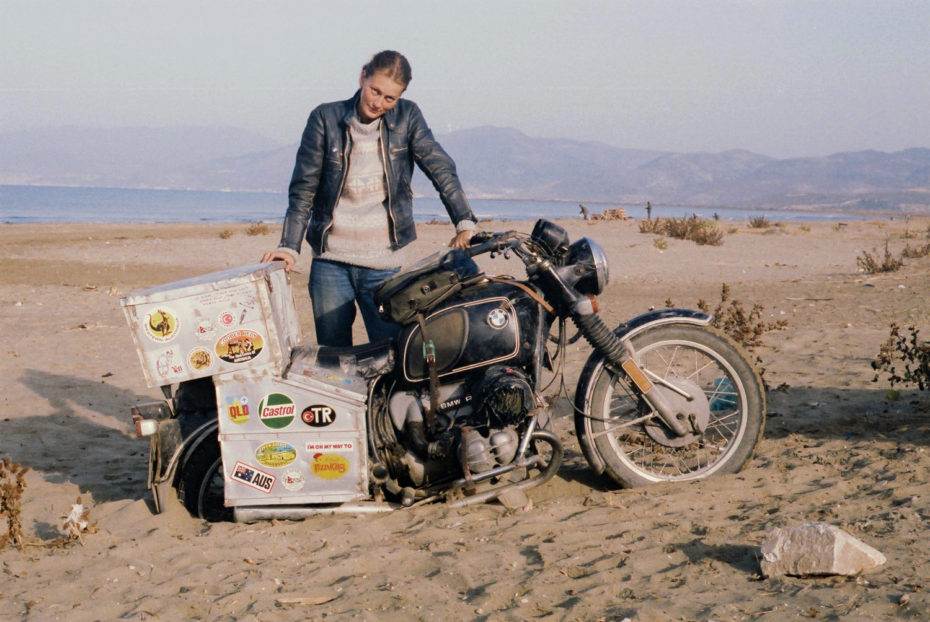
MNC: In an introductory nutshell, can you tell us why you decided to take this epic journey as the first British woman to ride around the world on a motorbike?
EB: Well, I was 23-yrs-old when I left England to ride around the world. I’d just finished my first three years architecture study, but I had struggled a bit towards the end of my degree for personal reasons. I was questioning whether to do it or not, so I thought I’ll just escape for a while…
MNC: What was your route around the world?
EB: So, in the summer of 1982, I started by going across America, then to New Zealand, Australia, Indonesia, Malaysia, Thailand, India, Nepal, Pakistan, Iran, Turkey, Greece, Europe, and finally, back to London. Just over 35,000 miles in 2.5 years.
MNC: Wow. And I heard that when you first took your trip, you sent a letter to a publication asking if they would share your story. Can you tell us their reaction, and what you would say to them today if you had the chance?
EB: Yes, I thought I would write to some bike magazines – offering to send them bits of my story to publish and so on, following my journey around the world. I only got two replies. One from BMW in Munich, a decline in a very nice letter saying, basically, “No thanks, but best of luck!”
The other was from a UK bike magazine. It was, I found, a very rude and chauvinistic letter. I sent them a picture of me on my bike, and they wrote back saying they were “getting their tongue tied in the typewriter” and so on. I’m sure it was supposed to be funny, but it wasn’t very funny to me. Especially since this was the days before email of course, so to reject me in such a cruel way took a lot of effort to actually type out and go and mail it in the post. They really went out of their way. But in an odd way, it actually fuelled me. Made me determined to do the trip, to succeed.
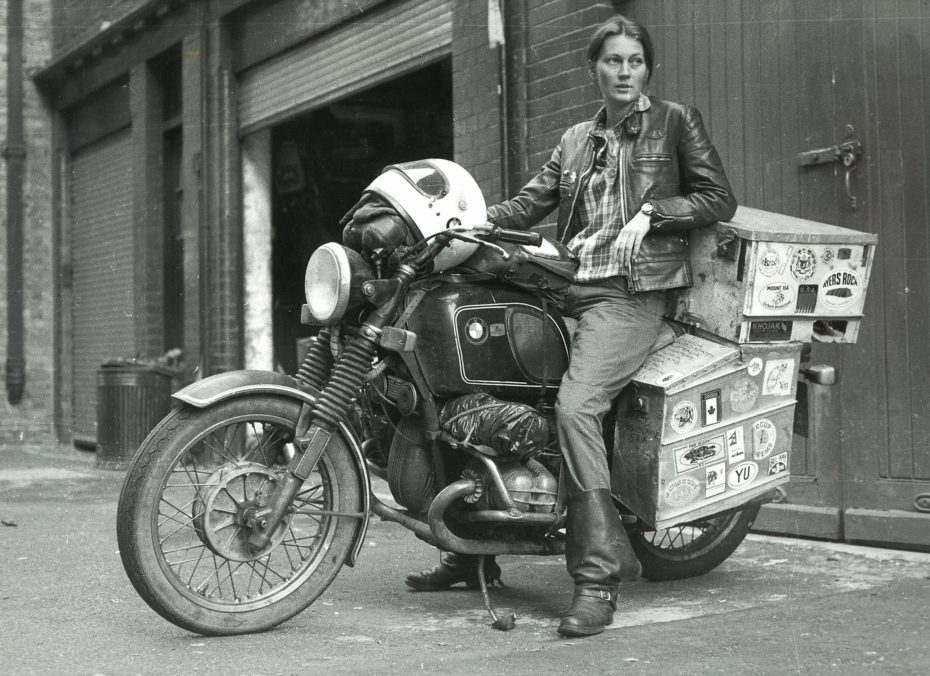
MNC: Absolutely. Can you think of other scenarios that happened to you around this time that might feel mind boggling today – or perhaps not – as a woman on your journey?
EB: In the late-1980s women just didn’t really ride big, serious motorbikes. All my gear was made for men. It was a very male-only club, the biking world then. The only women you tended to see in the magazines were scantily clad and draped over a motorbike. But to show a woman riding a motorbike? You just didn’t see it.
MNC: What did your family and friends think about the idea for your trip?
EB: I just remember this whole feeling from everyone doubting that I would ever do it. I wouldn’t say I was considered a joke, but it was very much an, Oh you won’t get very far, you’ll be back in three months kind of thing.
But it didn’t actually affect me, I just chose to ignore it.
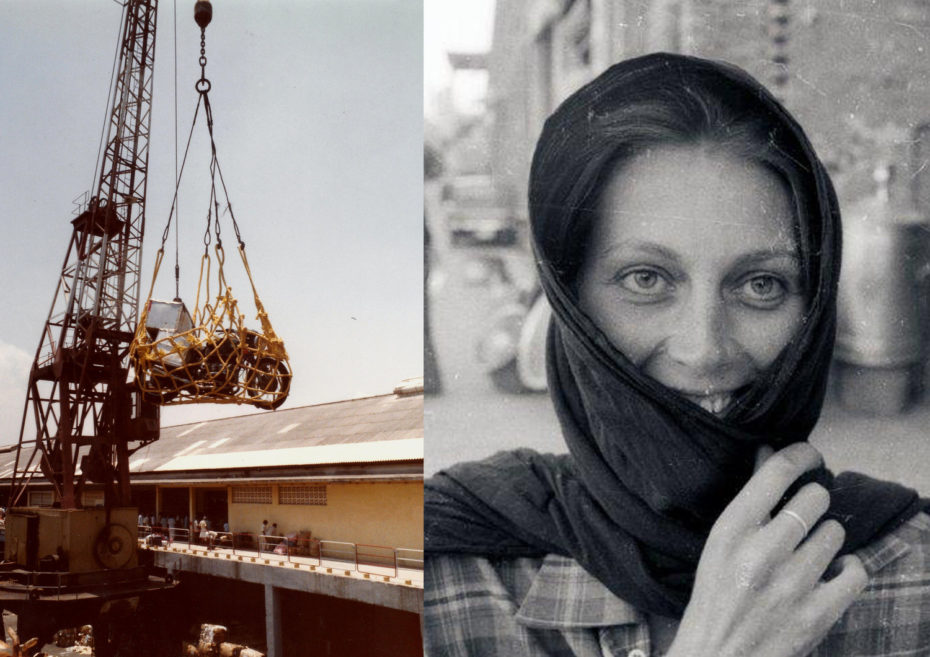
MNC: Which places were the most difficult to ride through?
EB: I would say Australia was physically the hardest country to ride through, because of the climate and the distances. It was a very harsh country, both mentally and physically. You had hundreds, and hundreds of miles every day of complete nothingness and off-road terrain. But every country had its different challenges. In some countries, I would keep my helmet on all day. I’d go to the market to buy food in my gear and nobody assumed I was a woman. I suppose that was the advantage I had then, because women didn’t ride big bikes. They thought I was a bloke!
It was difficult riding through Iran when it was at war with Iraq. Quite tricky.
MNC: What were some really close calls you had on the road?
EB: Well, I had two major accidents. My first was in the Australian Outback. I hit a pothole on a dirt road, and my front wheel got wedged in the pothole and the whole back of the bike flipped over, and I ended up cartwheeling down the road. The closest hospital was 190 miles away.
The second one was in Thailand; a big dog shot out from behind a truck, and I hit it – fell in a ditch and broke my toe. I ended up staying with the owners on their farm, this Thai family that was really kind to me. I also had everything stolen when I was in Singapore. All my passports, my shipping documents, bike documents, bike key – everything. It took me about two months to replace everything.
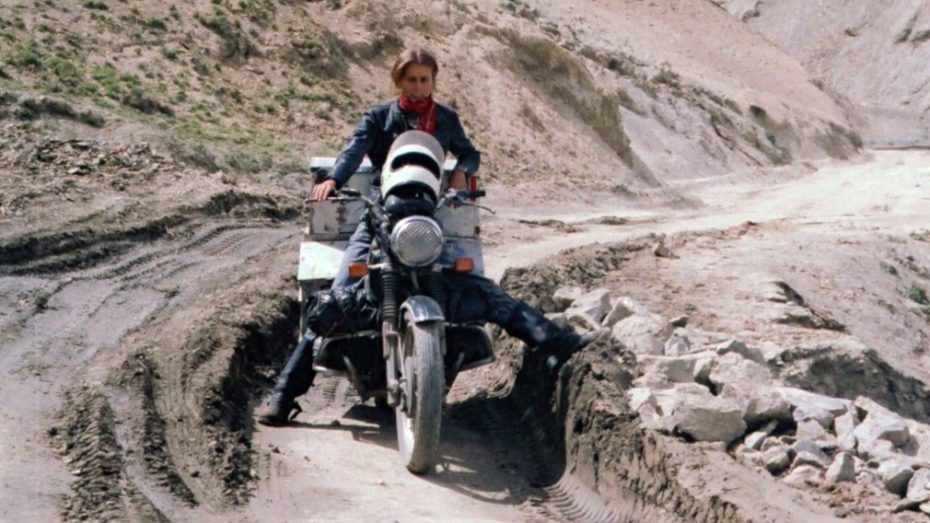
MNC Audience Member: Do you think you could take this same trip in today’s world, minus the pandemic, and do you think there would be more or less challenges?
EB: Well, in my day I didn’t have the advantage of mobile phones, internet, and GPS. In some ways it was a far simpler world – I didn’t have credit cards, and just carried all my money with me. But that was also kind of isolating. You know, I didn’t have a safety net. I always had to sort it out entirely on my own. Now there are a lot more people, obviously, travelling the world on bikes. It’s easier to get information, to meet up with others.
The motorbikes are also better, though if they break down they’re often more difficult to get fixed. My bike was very simple – I could fix it anywhere on the side of the road with basic tools.
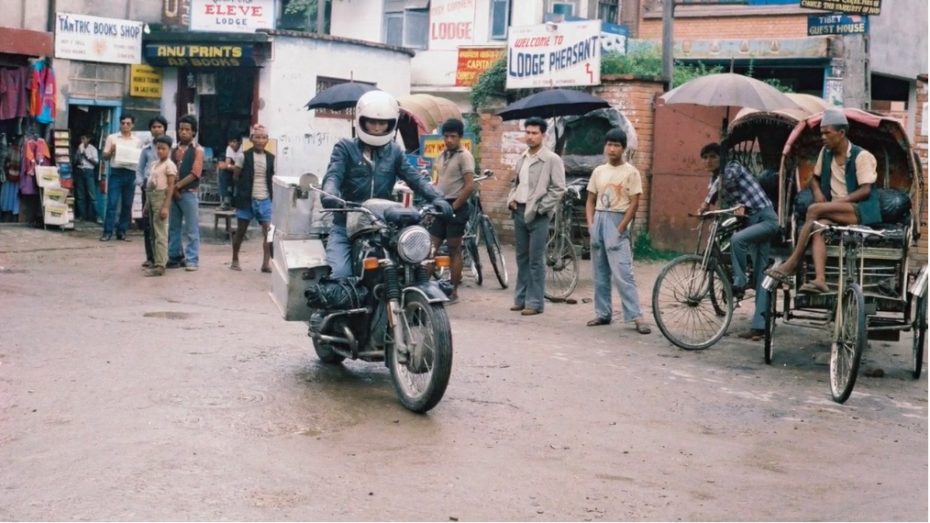
MNC: When you’re travelling today, do you try to intentionally avoid using things like GPS and mobile phones? Or do you find them useful?
EB: Oh, no I find them very useful [laughs]. Although, I tend to use the GPS more to get lost than to find my way! I’ll go out for a bike ride, anywhere that I want – down any road that looks interesting. Then, after roaming all day, I’ll switch on my GPS and let it take me home. I do also still like having a paper map…
MNC Audience Member: Did you make acquaintances as you travelled? Especially in any of the potentially dangerous countries for lone female riders?
EB: I did in Sydney, Australia. I arrived there completely broke, as I’d only brought about £2,000. So I was there for six or seven months, and got a job in a pub – got a job in an architectural practice, too. But I didn’t meet that many people on the road. There just weren’t any other people doing long trips on motorbikes. I met two people in Australia who travelled with me on their bikes for about a week. The only other person I met was this Dutch guy in Kathmandu.
I did stay with quite a lot of friendly, welcoming local people in my travels. It’s funny, I think that being a woman on my own in some countries people felt they needed to sort of protect me. If I was pitching my tent in a field, or something, someone would rush out and say, “Oh, no, no! Come in and stay with us!” So I would stay with these incredibly kind families. And while I couldn’t speak a word of Thai or Malay, it didn’t seem to matter. It’s amazing how much you can have a conversation with someone without speaking [laughs].
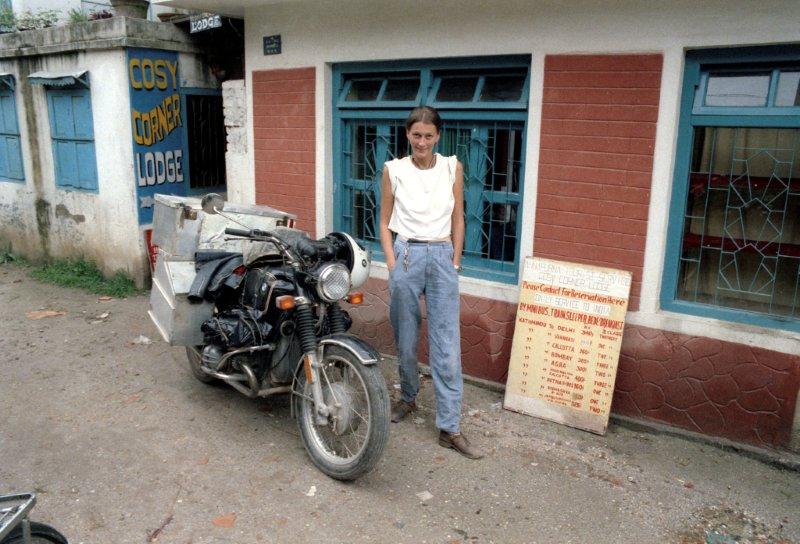
MNC: Is it true that you also found love in Kashmir?
EB: I did [smiles]. That was the Dutch guy I met in Kathmandu. We agreed to meet in India in a month’s time, as he wanted to do a different route than me. So we split up, and the met up again in Agra. Then we rode up to Kashmir, where we fell in love, and then we rode overland to back through Pakistan, Iran, Turkey, and back to Holland. Then I came back to London. He was the only other overland motorcyclist I met in the entire 2.5 years.
MNC: Do you recommend falling in love on the road?
EB: I would absolutely recommend it. It was the highlight of my trip. I also think that because I’d been on my own for 18 months. I mean, the road is a lonely place. You have to keep yourself together. You have to make the decisions. You have to keep going. It gets tiring. When Robert [the Dutchman] and I met, the trip turned from being an almost day-today survival experience into a holiday.
MNC: Do you know what happened to Robert?
EB: I do know what happened to Robert, and I cover it in the final chapter of my book. I wouldn’t want to spoil the end, though, for any of my readers as it would completely change how you would read the book!
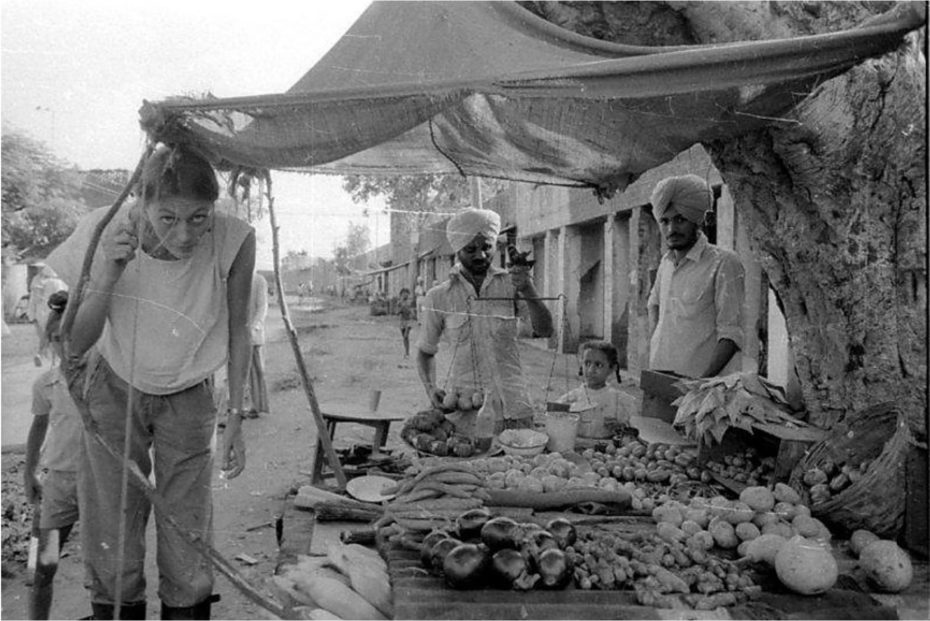
MNC: It seems like your trip overlaps with the Hippy Trail, and the Silk Road – did you run into any people on those paths?
EB: There were certainly places in India with lots of hippies from the 1960s-70s who had just never left. The Silk Road was further north, I think, whilst my route took me south through Pakistan. Russia had just invaded Afghanistan a year or two before I got there. So the main overland route from Europe to India was effectively closed. It was a constantly changing situation.
MNC Audience Member: Was your family worried when you left for your trip? How did you communicate with them when you were away?
EB: My mum did of course everything she could to stop me from going [laughs] she even threatened to disinherit me if I left! But she was just really, really worried. My father, he was a bit of strange character [laughs], he didn’t really say anything at all…
When I was in America and Australia I would try and phone home from a pub phone box about once a month. I used to pick up mail at post offices; I’d get my friends and family to write to a main post office in Singapore, or Bangkok, as I’d kind of work out places I knew I’d be passing through and give them a date up until which they could write to that post. And then I’d pick up a whole stack of three months mail in one go – that was nice. I loved that. I suppose once I hit India, I didn’t bother with that anymore. Most of the mail never seemed to arrive. So for a year I didn’t have any mail at all. Just occasionally telephoning, although trying to phone England from Pakistan or Iran was nearly impossible.
They didn’t know where I was most of the time. If they did, just the country.
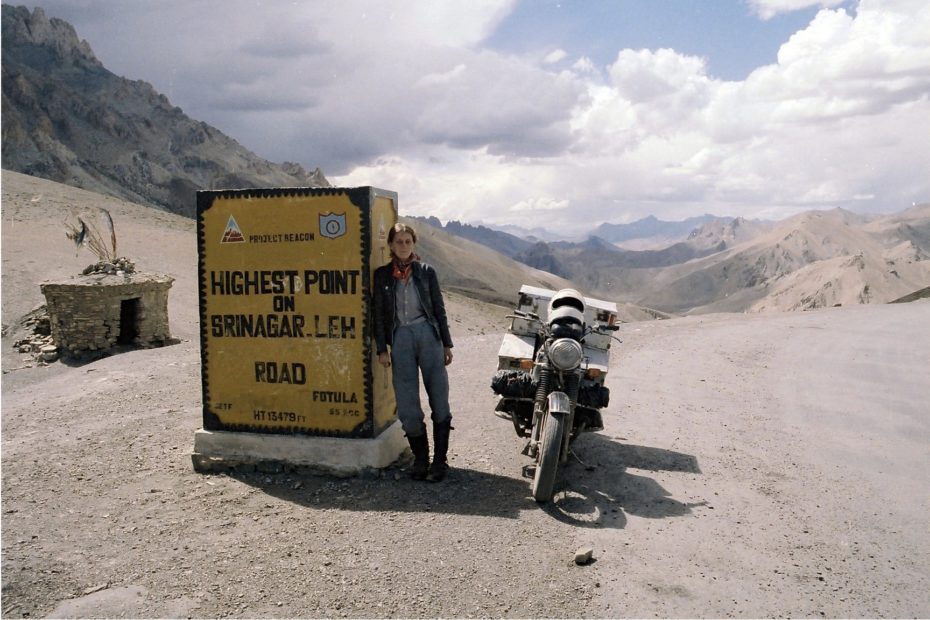
MNC: How did that feel?
EB: Well, you know, now we’re so used to everybody knowing where we are all of the time. It just wasn’t like that then. I was just out having my adventure!
MNC Audience Member: How did you handle getting sick throughout the trip?
EB: Ugh, yeah. That was tough, actually. I got really ill. Well I was ok, until I hit India – then that was it. I got Hepatitis, I got Dysentery. I lost about 3 stone (42 lbs) in weight – I mean, when I came home I was about 6.5 stone (90lbs), and I’m nearly 1.6 metres (6ft) tall. So there was not a lot of me. That was tough, to be lying in bed or in a hostel with no one to fetch you food or water. You just have to drag yourself out.
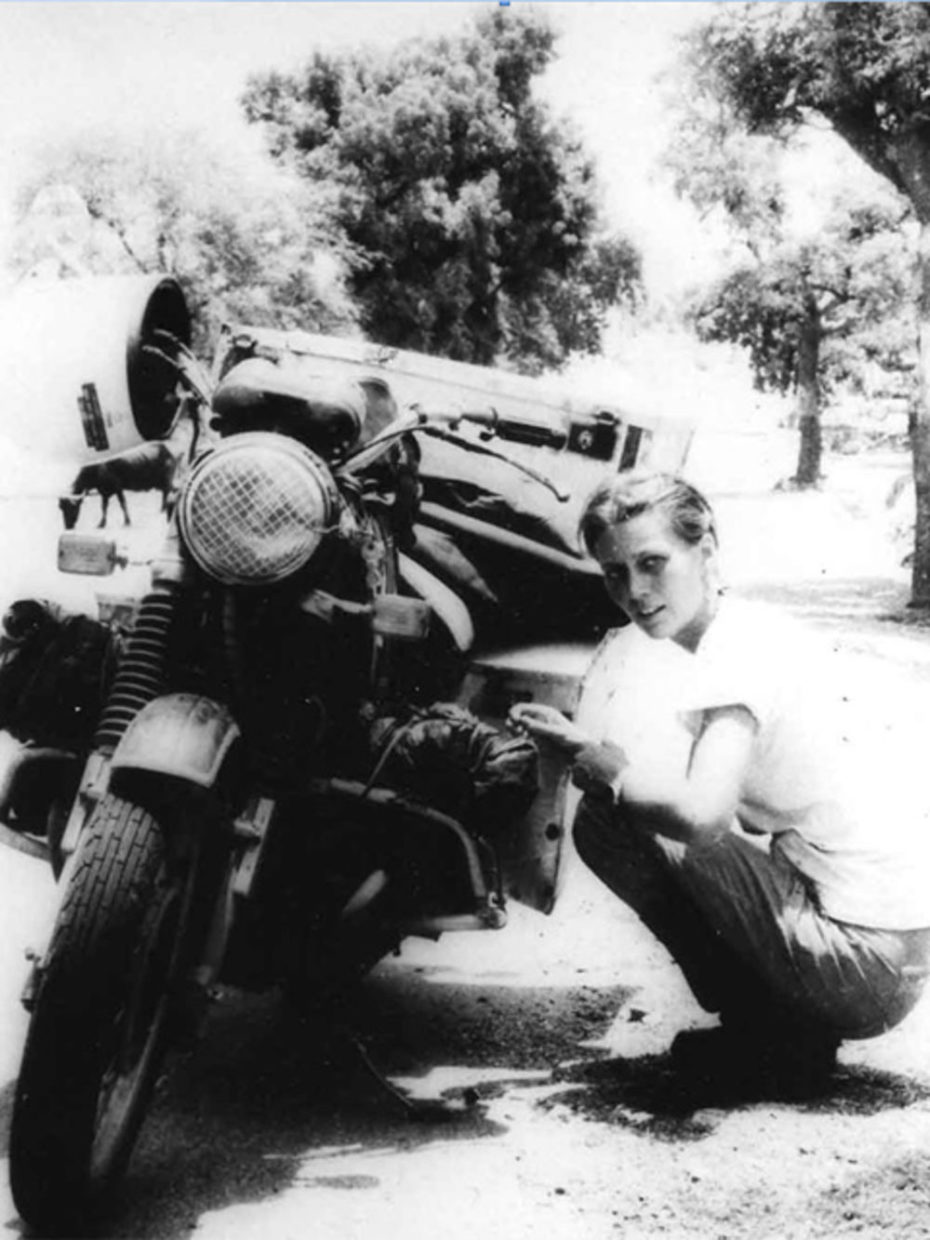
MNC Audience Member: As a woman, was it difficult to find a restroom on the road?
EB: [Laughs] It’s called the bush! Or anything. Half the time you didn’t even bother to try to find a restroom. You just had to squat down where you could, which in some countries was not easy. Some small tea shops might’ve had something. But again, it varied.
MNC: Is it true there’s a Hollywood movie in the works about your life?
EB: Yeah, so I have been approached by Hollywood twice. The first time was actually what inspired me to write my book, to have an accurate record by me of my story. I have signed an option agreement – I think they’re considering more of a limited series on a streaming platform. But who knows, I won’t hold my breathe!
MNC Audience Member: What was some of the best architecture you saw during your travels?
EB: Oh, yeah, the trip was brilliant for reigniting my interest in architecture. Really great. Like I said, when I left for my trip I was very downhearted about the whole thing. The houses of north Sumatra, the Batak houses, those were one of the high points. India, as well, for the old Victorian architecture and the old forts and temples. I loved that.
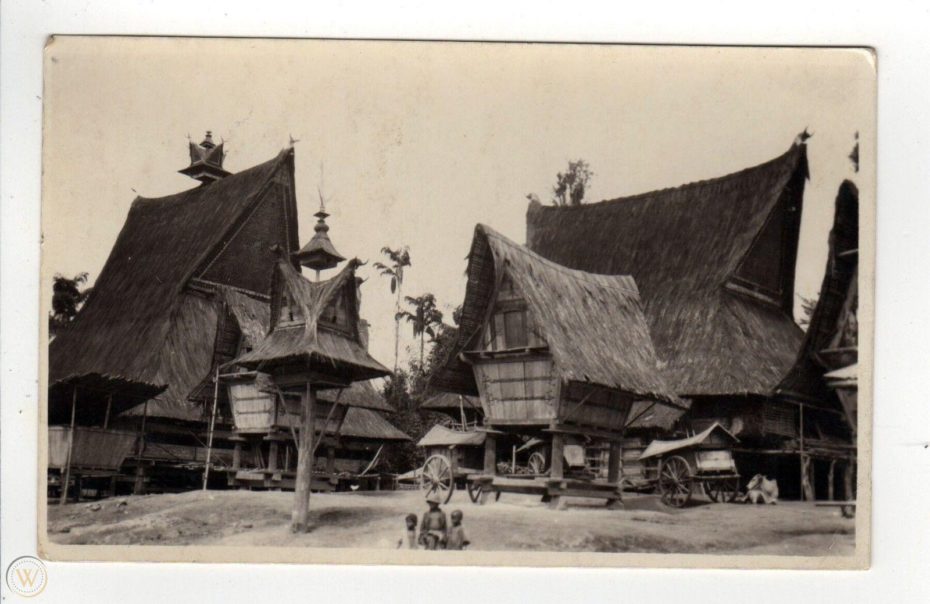
MNC: When the world opens up to the option of such travel again, do you have any places in mind you really want to go to – with or without the bike?
EB: Well, I was actually planning to be in Tajikistan next month. But that’s obviously been cancelled. That’s a part of the world I love – y’know, the mountains of northern Pakistan. All the “’stans,” I just love that part of the world. Hopefully, next year. I’d also like to do more of South America. I’ve done bits, but I’d like to get to Argentina, Brazil, Venezuela, Columbia, Ecuador. So, yes, there’s still lots to do!
MNC: Did you ever come close to quitting? If so, how did you stop yourself?
EB: Not really. I think I was so determined to do it. Also, in those days, they used to write your motorbike in your passport because they were paranoid you would sell it in southeast Asia, or somewhere where the tax on foreign bikes and cars was like 300%. You could make a fortune. So they kind of locked you to your bike. And in those days you couldn’t fly bikes. So the only way I was gunna get home was actually to sit on it, and ride it!
MNC: How many trips do you generally take a year?
EB: I try to do about two trips a year, but they’re much shorter. I’ll only be away for three or four weeks, which does make it a bit difficult. But I have my business and practice here to run as well. But it’s fine – it’s good!
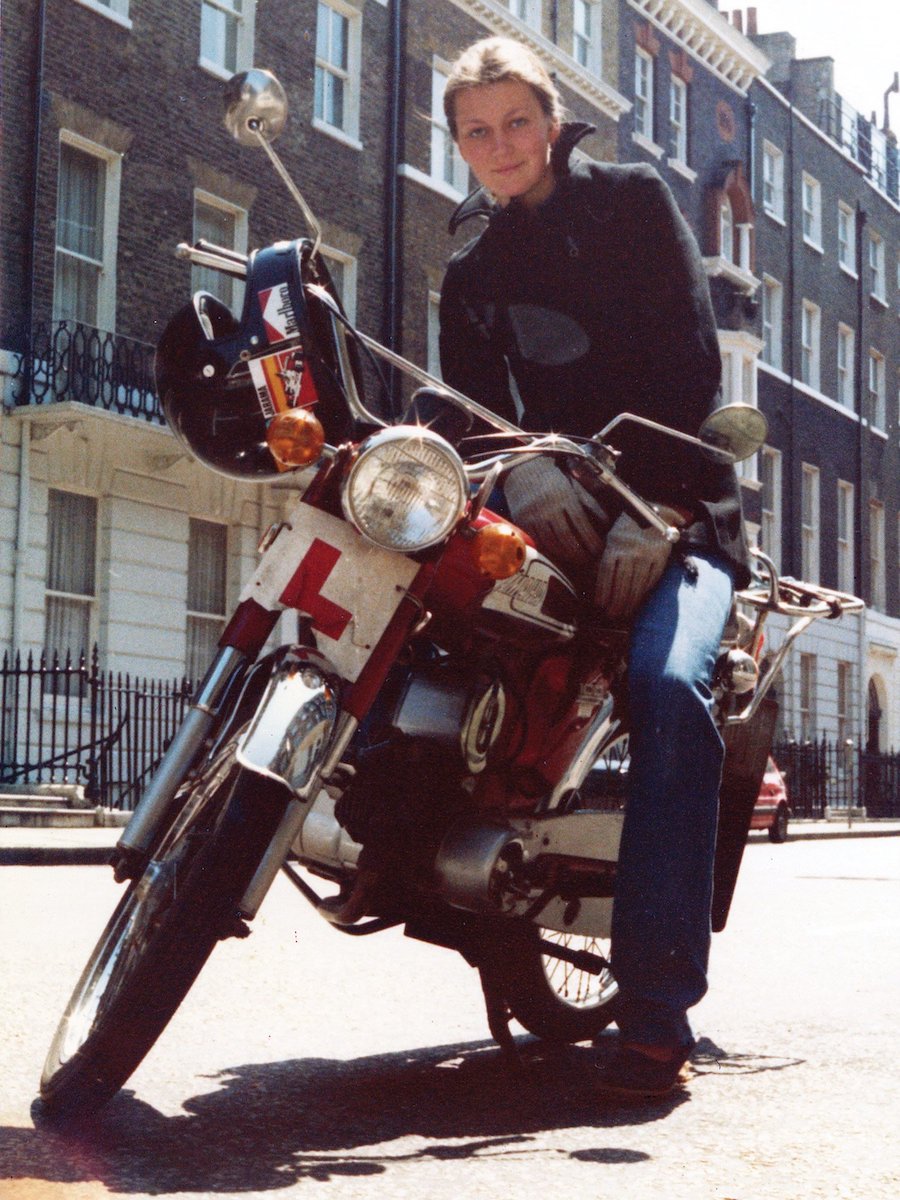
MNC Audience Member: Have you been back to any places from the original trip in 1982?
EB: I have, actually. In the early 2000s a friend of mine, Nick Sanders, asked me to manage his world motorcycle tour. So we took 33 motorcyclists around the world over a three month period – which was pretty mad [laughs]. We all got around, and all got home of course eventually. We went to many of the places I had been on that original trip, yes. I also went back to Kathmanduin the late 1990s. I picked up a Royal Enfield and rode it into Tibet…that was a great trip.
MNC: Did it feel strange, to revisit those old places after so much time?
EB: I kind of find that, well, I can’t think of a single place I’ve returned to and it’s been better than the first time you ever see it. I almost wish I hadn’t gone back? I think that, certainly for me, it’s good to remember places as they first were for you. Travel has also changed so much.
MNC: What kinds of things do you miss – or are we missing – the most?
EB: I think then it was just much quieter in some respects. There are more people travelling now, which changes places in both good and not so good ways. In the late 1970s and early ‘80s, backpacking was just starting to open up and change tourism. You really felt you could go places – explore, discover. On one side of it, it’s great so many more people get out there and see the world. But it does take its toll on the local people and countries. It changes them.
MNC: Do you have any advice for first time solo travellers?
EB: Well, make sure you enjoy your own company! [Laughs] I think, for me, it was just something I did. I didn’t choose to necessarily travel on my own, it was just what it was. I wanted to ride my bike around the world, and no one else wanted to do it.
MNC Audience Member: Do you have any advice for those who want to start riding a motorbike?
EB: I would say, start off small. Work up slowly. I think a lot of motorbike manufacturers tend to sell people, and especially women, bikes that are far too big and heavy for them. Once you’ve outgrown that one, little by little, go to one a bit bigger. Don’t feel pressured in thinking you need something big – and then go explore. Have fun. It’s such an amazing experience. My dad had one of those Honda step-through, 50CC things, and I used to ride that all over London. It was brilliant. I got cold, I got wet, I skidded – but it was light, and easy. And I learned to recover. That’s what you want, when you’re learning how to control a bike, how to build your confidence. Then, have fun!
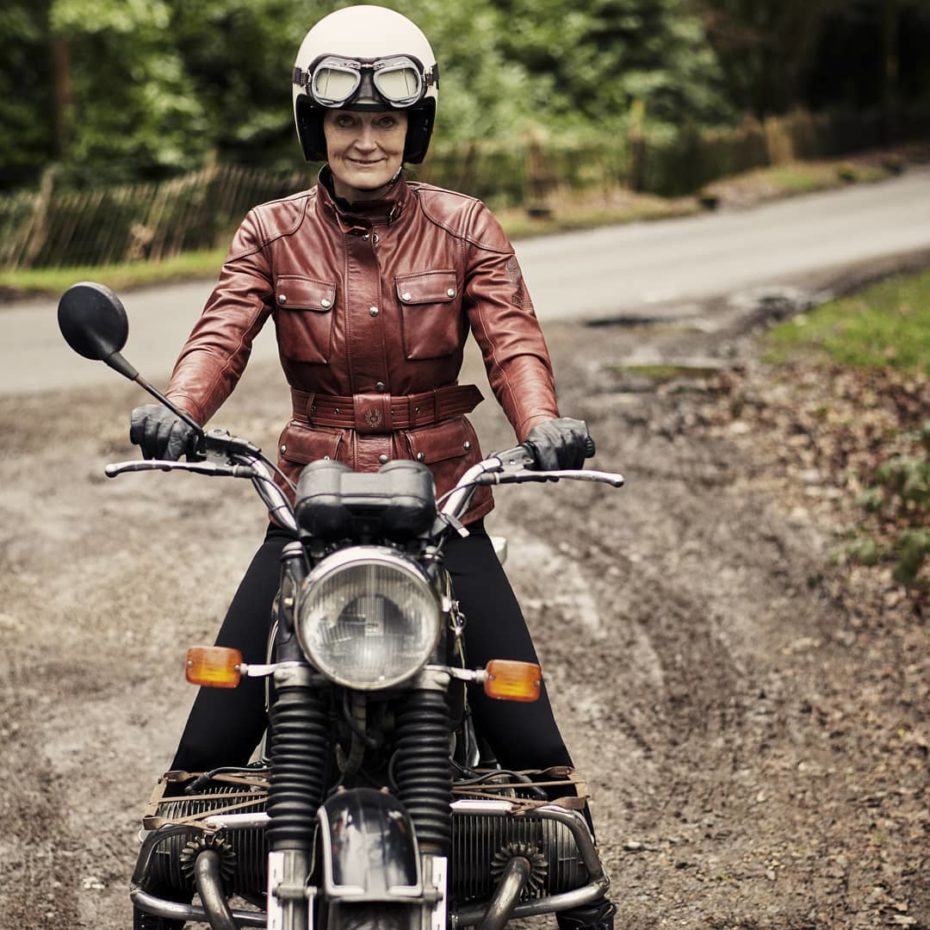
MNC: Where is your famous bike now? In a museum?
EB: It’s in my garage. I still ride her! I would never sell her, but hopefully she’ll end up in a museum or somewhere where someone can look after her.
MNC: Elspeth, thank you so much for joining us today.
EB: Thank you!
You can snag a signed copy of Elspeth Beards’s book “Lone Rider” from her website. Also available from Amazon or as an Audiobook.
